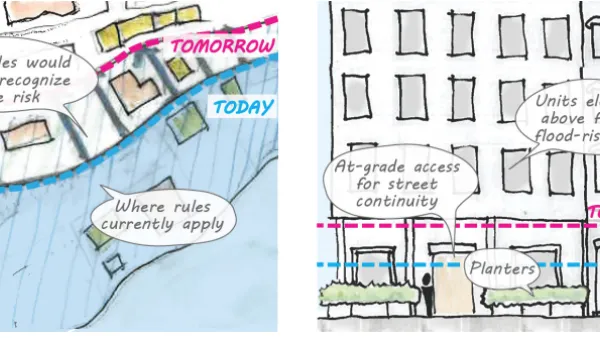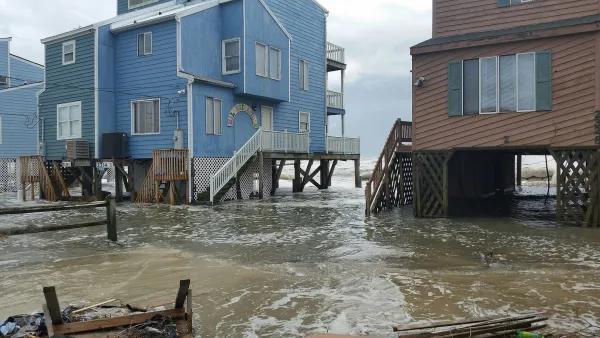New research suggests that real estate values were declining before prices started falling, but a climate-driven housing crisis could already be here in coastal Florida.

Christopher Flavelle reports on the plight of the real estate market in Florida, which is slowly starting to show signs of awareness about the effects of climate change and sea-level rise.
Central to Flavelle's reporting is a report published yesterday by the National Bureau of Economic Research that finds a real estate market waking up to the risk of sea-level rise (SLR in the following passage). From the study's abstract: "From 2013-2018, home sales volumes in the most-SLR-exposed communities declined 16-20% relative to less-SLR-exposed areas, even as their sale prices grew in lockstep. Between 2018-2020, however, relative prices in these at-risk markets finally declined by roughly 5% from their peak."
Flavelle's summary of the report's findings read thusly: "The authors argue that not only is climate change eroding one of the most vibrant real estate markets in the country, it has quietly been doing so for nearly a decade."
According to the article and the study, the decline of Florida's coastal real estate market started in 2013, but no one noticed.
The focus on Florida's coastal real estate market follows shortly after a similar article detailed the effects of climate change-induced flood risk on the real estate markets of the coastal Carolinas.
FULL STORY: Florida Sees Signals of a Climate-Driven Housing Crisis

National Parks Layoffs Will Cause Communities to Lose Billions
Thousands of essential park workers were laid off this week, just before the busy spring break season.

Retro-silient?: America’s First “Eco-burb,” The Woodlands Turns 50
A master-planned community north of Houston offers lessons on green infrastructure and resilient design, but falls short of its founder’s lofty affordability and walkability goals.

Delivering for America Plan Will Downgrade Mail Service in at Least 49.5 Percent of Zip Codes
Republican and Democrat lawmakers criticize the plan for its disproportionate negative impact on rural communities.

Test News Post 1
This is a summary

Test News Headline 46
Test for the image on the front page.

Balancing Bombs and Butterflies: How the National Guard Protects a Rare Species
The National Guard at Fort Indiantown Gap uses GIS technology and land management strategies to balance military training with conservation efforts, ensuring the survival of the rare eastern regal fritillary butterfly.
Urban Design for Planners 1: Software Tools
This six-course series explores essential urban design concepts using open source software and equips planners with the tools they need to participate fully in the urban design process.
Planning for Universal Design
Learn the tools for implementing Universal Design in planning regulations.
EMC Planning Group, Inc.
Planetizen
Planetizen
Mpact (formerly Rail~Volution)
Great Falls Development Authority, Inc.
HUDs Office of Policy Development and Research
NYU Wagner Graduate School of Public Service





























